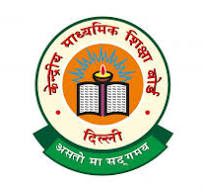CBSE's Podcast Initiative: Empowering Student Voices

In a groundbreaking move to transform India’s education landscape, the Central Board of Secondary Education (CBSE) has launched a student-led podcast and social media initiative for students in Classes 9 to 12. Announced in late August 2025, this initiative aims to shift the focus from rote learning to creativity, critical thinking, and active expression. By giving students a platform to share their voices through podcasts, videos, and social media content, CBSE seeks to make education more engaging, relatable, and student-centric. This article explores the details of the initiative, its objectives, and its potential impact on India’s education system.
The Initiative: Empowering Student Voices
On August 28, 2025, CBSE issued a circular inviting affiliated schools to nominate articulate and confident students from Classes 9 to 12 to participate in its in-house podcasts and social media initiatives. The program encourages students to contribute through short audio and video clips, testimonials, and interactive conversations, which will be shared on public platforms like YouTube. The initiative is part of CBSE’s broader digital transformation strategy, aligning with the National Education Policy (NEP) 2020’s emphasis on tech-driven, inclusive learning.
The primary goal is to create content that resonates with young learners. Topics will cover academic guidance, exam preparation, career counseling, mental health, and emotional well-being. By involving students directly, CBSE aims to make its digital outreach more authentic and relatable, moving away from one-way communication to a dialogue that reflects students’ perspectives and experiences.
Breaking the Rote Learning Culture
India’s education system has long been criticized for its reliance on rote memorization, often stifling creativity and critical thinking. CBSE’s initiative seeks to address this by providing students with a platform to express their ideas and question their knowledge actively. As Vaishnavi Mishra, a Class 12 student from Seth Anandram Jaipuria School, stated, “It gives me a chance to share my ideas, inspire juniors, and encourage them to think creatively.” Similarly, Nandika Jain, a Class 12 student from DPS, noted, “When we create a podcast or run a class page, we start thinking, questioning, and presenting in our own voice.” These testimonials highlight the initiative’s potential to empower students to become creators rather than mere memorizers.
By engaging in content creation, students are encouraged to interrogate their understanding, articulate their thoughts, and develop confidence in expressing themselves. This shift aligns with CBSE’s vision of transforming classrooms into spaces of dialogue and innovation, fostering skills like communication, collaboration, and digital literacy that are essential for the 21st century.
How It Works: Nomination and Participation
Participation in the initiative is voluntary and requires written consent from both the student and their parents or guardians, submitted through their school. CBSE has asked schools to identify students who are confident, articulate, and interested in contributing to podcasts and social media content. Schools must submit nominations, including brief student profiles, via a Google Form within 10 days of the circular’s release. This structured process ensures that only willing and capable students are involved, maintaining a high standard for the content produced.
The content created by students will be integrated into CBSE’s existing digital platforms, such as the “Shiksha-Vani” podcast series, which offers nearly 400 NCERT-based episodes for Classes 9–12, and the “Big-News, Bigger-Voices!” podcast series launched in May 2025. These platforms already feature contributions from educators and experts, but the inclusion of student voices marks a significant step toward making CBSE’s outreach more inclusive and engaging.
Broader Digital Transformation
CBSE’s podcast initiative is part of a larger effort to modernize its communication and support systems. The Board has been producing in-house podcasts on academic and counseling matters for several years, available on platforms like YouTube and the Google Play Store. The new student-led phase builds on this foundation, aiming to enhance accessibility and outreach. By leveraging digital platforms, CBSE ensures that students, parents, and educators can access resources anytime, anywhere, making education more flexible and inclusive.
The initiative also reflects CBSE’s commitment to aligning with global educational trends, where digital content and student agency are increasingly prioritized. By involving students in content creation, CBSE is not only amplifying their voices but also equipping them with skills in media production, public speaking, and digital engagement—skills that are highly valuable in today’s interconnected world.
Challenges and Opportunities
While the initiative has generated significant enthusiasm among students and educators, its success depends on effective implementation. Schools must provide adequate time, training, and resources to support student participation. As noted in reports, the promise of transforming rote-heavy classrooms will only be realized if schools create genuine curricular space for such projects. This includes training students in podcast production, scriptwriting, and digital content creation, as well as ensuring access to necessary technology.
Additionally, the initiative opens up opportunities for students to develop leadership and communication skills, preparing them for future academic and professional challenges. As Ojysa Chugh, a DPS student, highlighted, “What makes it exciting is the wider reach—we can inspire others beyond our school.” By contributing to CBSE’s official platforms, students can influence a national audience, fostering a sense of responsibility and purpose.
CBSE’s student-led podcast and social media initiative for Classes 9–12 marks a significant step toward reimagining education in India. By empowering students to share their voices, the Board is fostering creativity, critical thinking, and confidence, moving away from the constraints of rote learning. While challenges remain in terms of implementation and resource allocation, the enthusiasm from students and the alignment with NEP 2020’s goals suggest a promising future. As CBSE continues to expand its digital outreach, this initiative could pave the way for a more dynamic, student-centric education system that prepares young learners for a rapidly changing world.